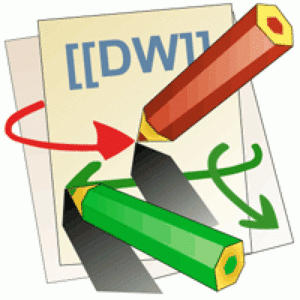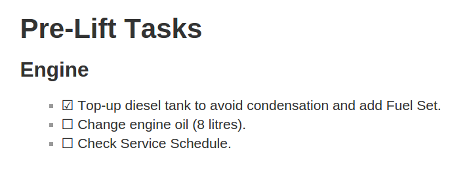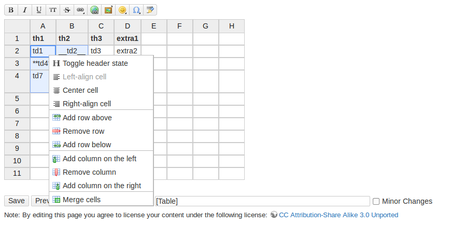Discovering Dokuwiki
03 Dec 2015
I was looking for a Wiki for managing the sharing of a boat, including booking usage, task lists and maintenance, as well as acting as a repository for any-and-all information available.
What it looked like was incidental, but it needed to be really simple for users to edit pages quickly. I wanted to squeeze it onto a work server, so it also needed to be really lightweight.
The Choices
I have experience of using both Wordpress and Drupal, but felt they were too complex and cumbersome for this use-case. I have also used MediaWiki in the past but, whilst easy to edit, I found it fairly cumbersome to use - it is after all designed for managing vast sites.
In the end I opted for DokuWiki, after stumbling across a site that recommended it as a really simple alternative to MediaWiki.
Installing DokuWiki
Dokuwiki is really easy to install, with delightfully simple instructions for Apache, but following my lightweight wishes I decided to try Nginx for the first time. Unfortunately I could not immediately find Nginx Instructions from DokuWiki, so instead followed these Nginx Instructions from Rose Hosting.
On first attempt the landing page would not load, but the nginx logs were very clear and helpful in pointing me to increasing a value of server_names_hash_bucket_size in /etc/nginx/nginx.conf.
This I found was commented out (with a default of 32), so I uncommented it and increased it to 64 and restarted nginx.
At last I could reach the install page and from that point it all worked perfectly.
Later I decided to implement Nginx Pretty URLs, which again worked perfectly.
First Impressions
The main thing I love about DokuWiki is the simplicity.
Creating users is trivial, creating and editing pages is a doddle, there is a reasonably sane way of managing media files, and the Wiki syntax is bearable (not Markdown sadly).
Despite this simplicity, each time I have come across something I’d like to tweak, then there has been a way to do it without resorting to nasty hacks. Where Plugins are required, these can be installed in seconds via the web interface.
Most of what I was trying to do with this boat site was simply a matter of creating pages, but I did come across a few exceptions:
Checklists

One of the key uses for the site is to host a number of checklists, but I wanted tickboxes against each item.
Not essential clearly, but it turned out to be trivial, simply deciding how to type a tickbox, e.g. square brackets for incomplete [] and [x] for complete, and then adding DokuWiki Entities to convert these into the appropriate character.
Bookings

The main problem that I faced was how to enable boat users to book time on the boat and in the end I settled on using simple text tables, but to make them simpler to edit I added Andreas Gohr’s excellent Edittable Plugin. This plug-in is so good that I would always install it in any DokuWiki that will have tables.
Whilst this will certainly do for now, I am on the look out for some sort of site to manage bookings properly - if you know of anything suitable please do comment below, otherwise at some point I will probably write one in Perl Dancer!
Conclusions
Under the Use Cases on the DokuWiki website there is the suggestion of using it for a Private Notebook - having used DokuWiki I can totally see how that would make sense - it is that simple to create and edit.
DokuWiki has definitely filled a gap in my web toolbox, alongside Perl Dancer and Jekyll.
